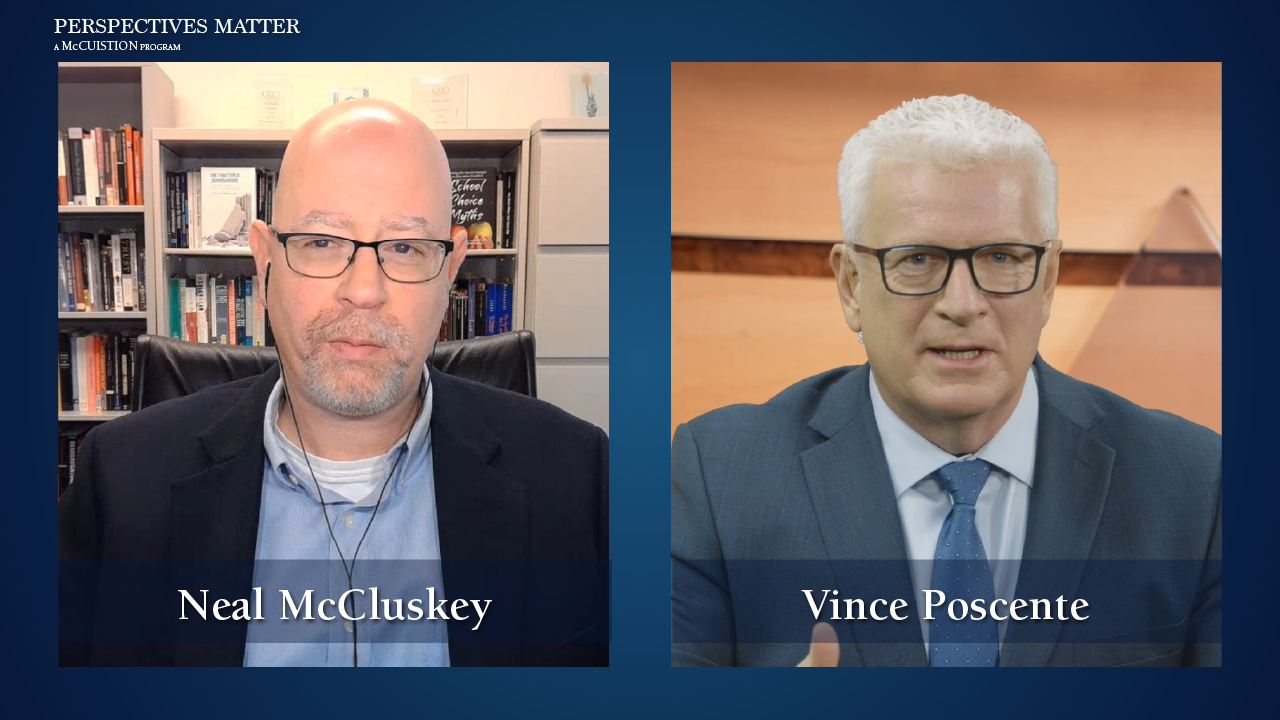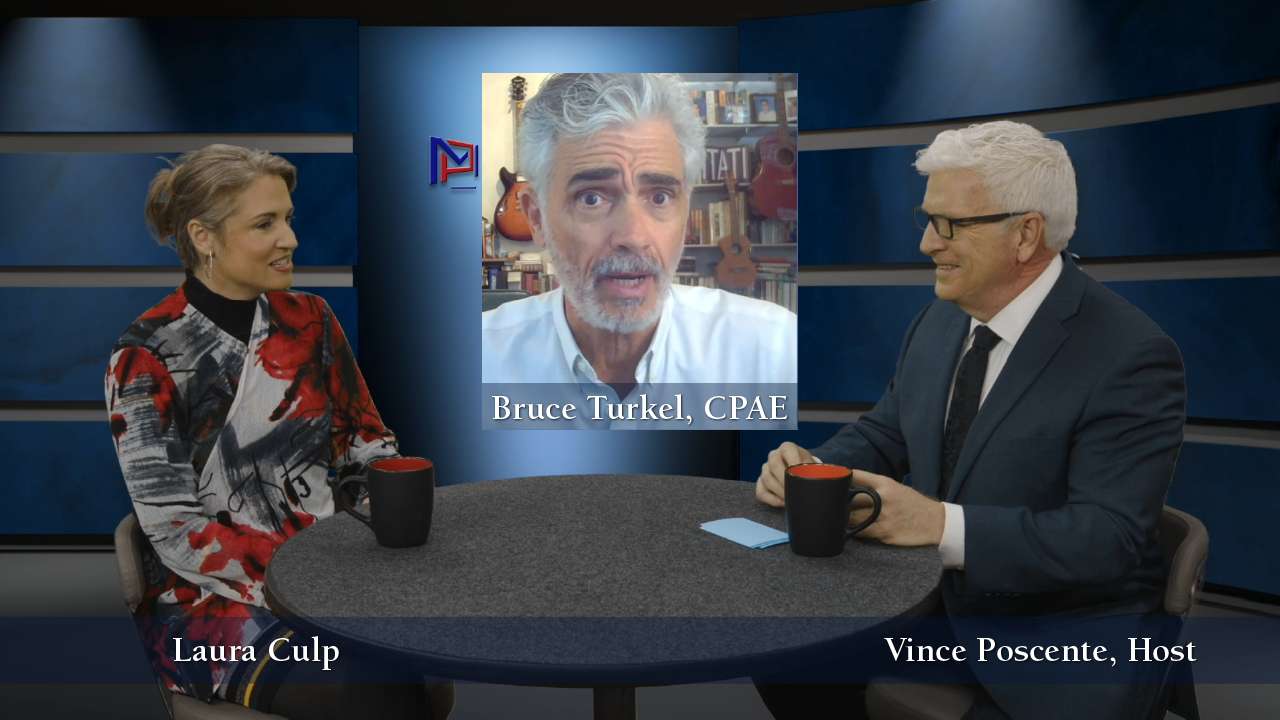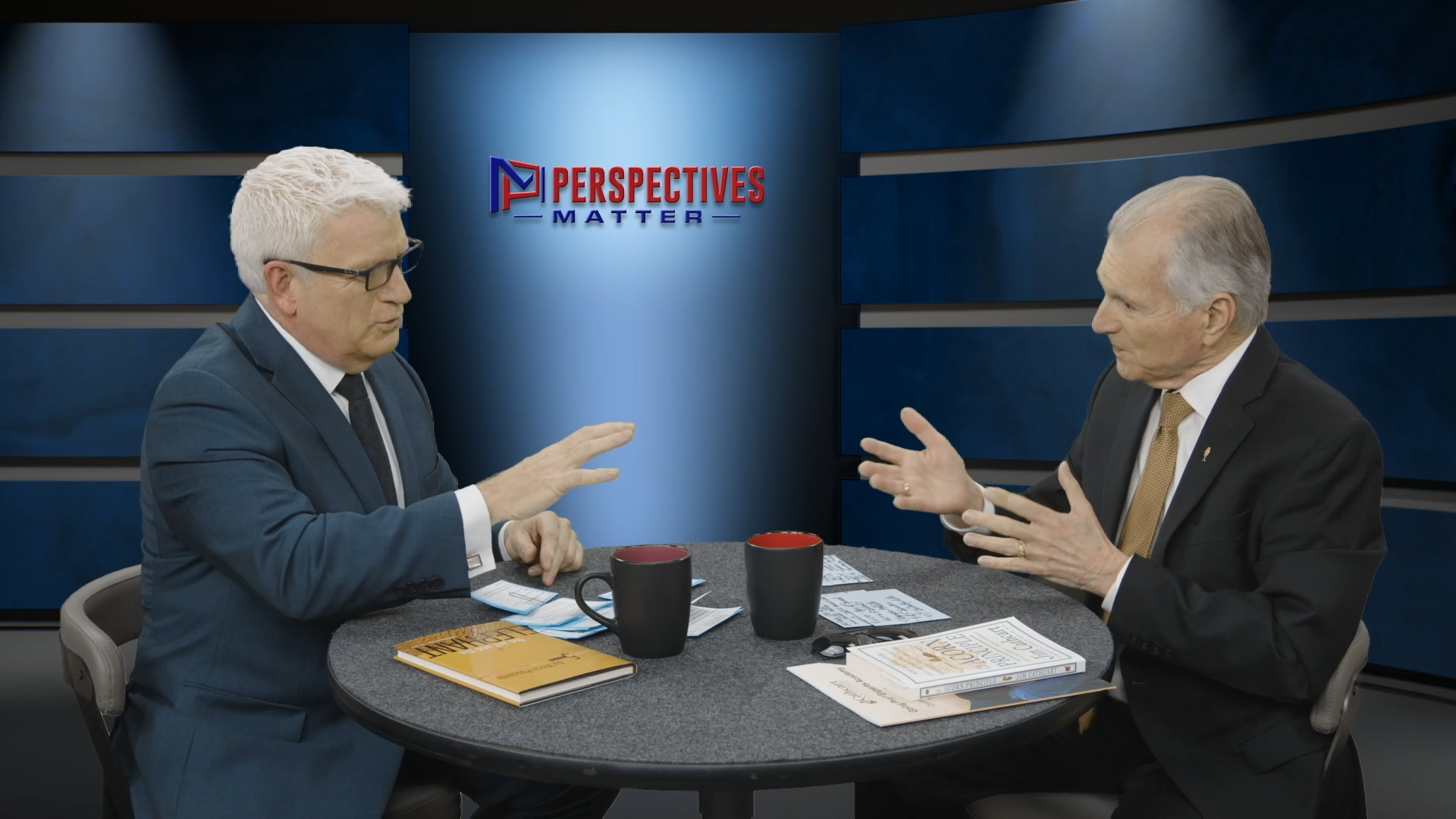Education in the United States is problematic. We keep throwing money at schools with no success. During this second episode in a three part series, we discuss whether education is progressing or declining.
Host, Dennis McCuistion, talks to guests:
- Courtney Boswell: Executive Director, Texas Institute for Education Reform
- The Honorable Kathleen Leos: CEO, the Global Institute for Language and Literacy Development, and
- Quinn Vance: Executive Director, KIPP DFW
Panelists discuss the issues with education and whether our education system is progressing or declining.

Left to Right: Courtney Boswell, Quinn Vance, Honorable Kathleen Leos
They are joined through taped interviews by Charles Murray, author of The Bell Curve. According to Murray, part of the challenge is that some children from poor socio-economic environments do not have the tools they need at home to help them learn. The challenge is to meet kids where they are coming from, to be innovative, and that means expanding the scope toward education.
Our thinking needs to shift to give them a head start. Ms. Leos addresses the neurology of learning and language and the vocabulary issues that children have if they don’t have access to learning and reading at home.
Examples of progress are exemplified by schools like KIPP. KIPP, which stands for, Knowledge is Power Program, was founded in 1994 to solve the concern that kids would not learn what they needed to in “regular” schools. KIPP wants their graduates to choose a successful life of their own choosing. To date they have 162 schools and 50,000 kids in the KIPP system. Quinn tells us that by 2015 KIPP aspires to 10,000 KIPP students who have graduated high school and are in college.Progress may also mean Charter schools and having standards schools must adhere to. It’s about measurements and what we expect and to what we will hold students and teachers accountable.
TIER, Texas Institute for Education Reform, tells us more about testing. Testing is a data base point and not the only metric used or needed; it is also controversial.
Lawrence Steinberg, author of Beyond the Classroom, joins us to talk about the political aspects of education. The issue is not just in the classroom, it’s also taking a look at what else do kids need to learn and know in order to be successful.
Overall, the biggest problems teachers face is not about money or having the books and the right tools. It’s kid’s attitudes and values, which today amongst some is antithetical to learning. The issue may be what children bring to the classroom to allow for the exchange of information. Kids who are not fully engaged are not receptive to learning. And the education challenge is growing.
Join us as we talk about things that matter… with people who care.
Transformational Change Agent
Organizational, Personal, Culture Change
Google+ Profile






